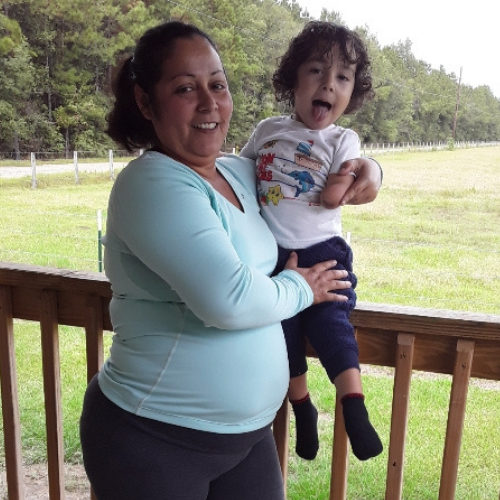To qualify for asylum in the United States, applicants must show that they cannot return to their home country because they were or fear they will be persecuted. Typically, these means persecution for race, religion, nationality, membership in a particular social group, or political opinion.
In recent years, however, there has been more discussion of the relation between asylum law and domestic violence.
One of the Pelton + Balducci clients was brave enough to tell her story in order to fight for her right to seek refuge in the United States, and it paints an important picture of how asylum law can work to keep people safe.
A childhood of domestic violence and abuse
Elvira was born and raised in a small village in Honduras, one of 13 children.
The children were terrorized by family violence. Their father routinely beat their mother, who had to flee for extended periods to find safety. She would return, however, knowing that her kids needed her and unable to find the means to live independently.
And the cycle of violence would resume.
If Elvira’s mother sought help from the police, they would tell her to go back home for the kids’ sake and to try to steer clear of her husband when he was mad.
During her childhood, one of Elvira’s sisters was kidnapped, and she and several of her siblings were sexually assaulted by a family member. Due to the chaos at home, their parents were unable to protect them. Although the Honduran authorities were aware of the incidents of violence and of the identity of the perpetrators, they did not get involved.

Making sacrifices and difficult choices
At 15, Elvira sought to flee the danger of chaos at home by trying to start her own family.
Unfortunately, she wound up in an extremely violent relationship, and there appeared to be only two ways out: either her partner would kill her or she would kill herself.
Only the love she had for her daughters kept her from taking her own life.
Ultimately, Elvira’s abuser abandoned her and their daughters. Elvira found work, and she was able to support her daughters and herself and to buy themselves a home.
The stability was short-lived, however, as members of some of Honduras’ infamous gangs began showing interest in and making demands of Elvira’s young daughters. These gangs had a broad influence that spread throughout the small Central American country.
Despite the gains she had made, Elvira knew that she and her daughters had to flee Honduras in order to be safe.
Seeking asylum in the United States
Elvira sought refuge in the United States, where she finally found freedom from violence and a loving relationship.
She gave birth to her son Dayverson, who was born without his lower left arm. As he grew older, therapists began identifying cognitive developmental delays.
Pelton + Balducci were honored to file Elvira’s asylum application.
Through her courageous testimony, Elvira proved that the domestic violence she suffered was past persecution. She was also able to show that she would suffer other serious harm if she were forced to return to Honduras, due to the dangers her daughters would suffer and on account of the lack of resources to provide for Dayverson’s special needs.
We are very proud of Elvira, who won her case and is now applying for permanent resident status.
Pelton + Balducci are here to help
Domestic violence-based asylum cases require a unique approach and dedicated, experienced asylum attorneys. Our Louisiana immigration lawyers at Pelton + Balducci have represented domestic violence survivors through affirmative and defensive asylum applications.
If you’re seeking immigration protection as a survivor of domestic violence, we welcome the opportunity to speak with you and to give you an honest evaluation of your options.
Note: If you’re currently in danger of domestic violence, we encourage you to take care of your immediate safety before seeking immigration assistance. You can contact the National Domestic Violence Hotline at 1-800.799.SAFE (7233) for information and resources. Also, if you’re currently in a domestic violence situation, be mindful that Internet usage can be monitored and is impossible to erase completely. You should clear your browser history after visiting this website. Learn more about digital security if you’re in danger due to domestic violence here.




